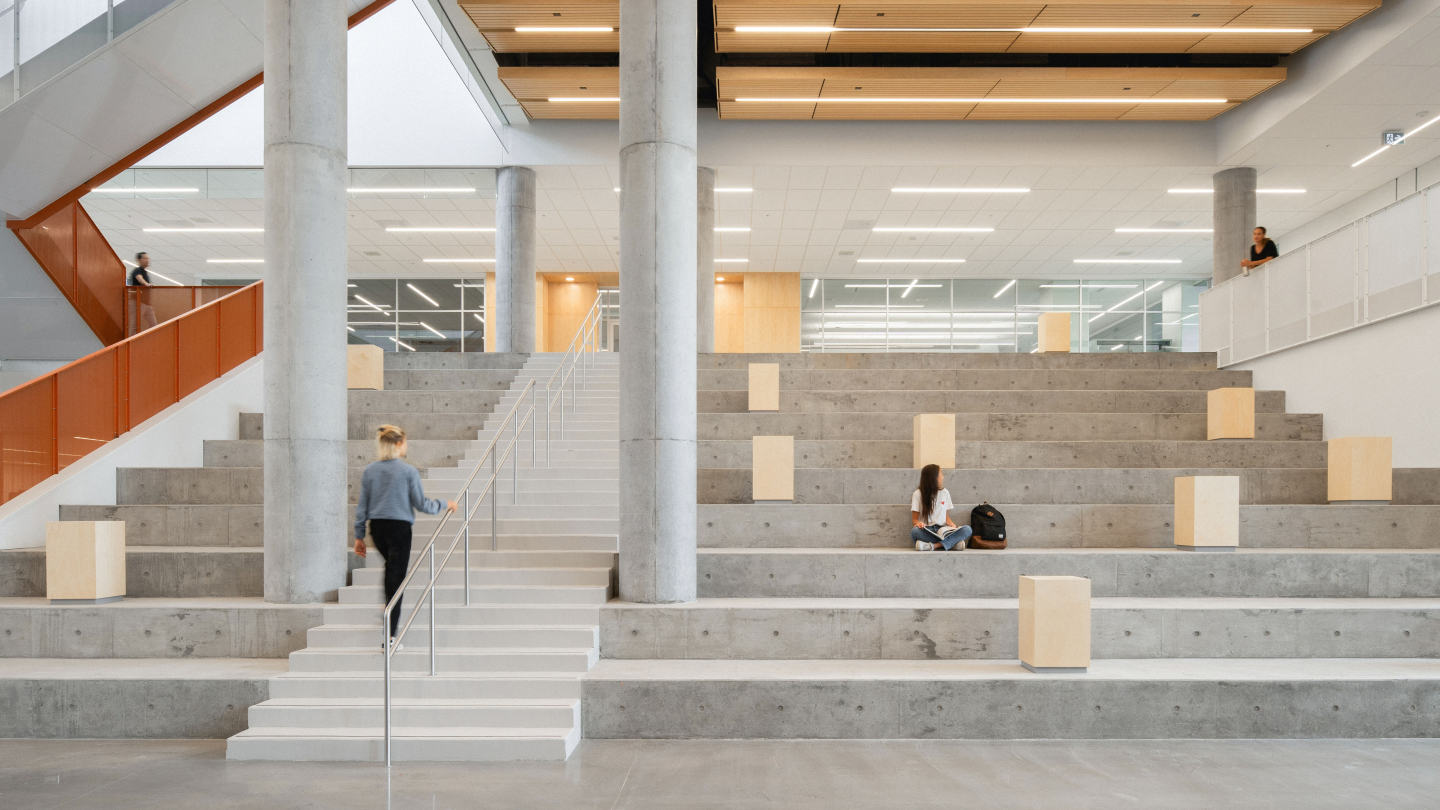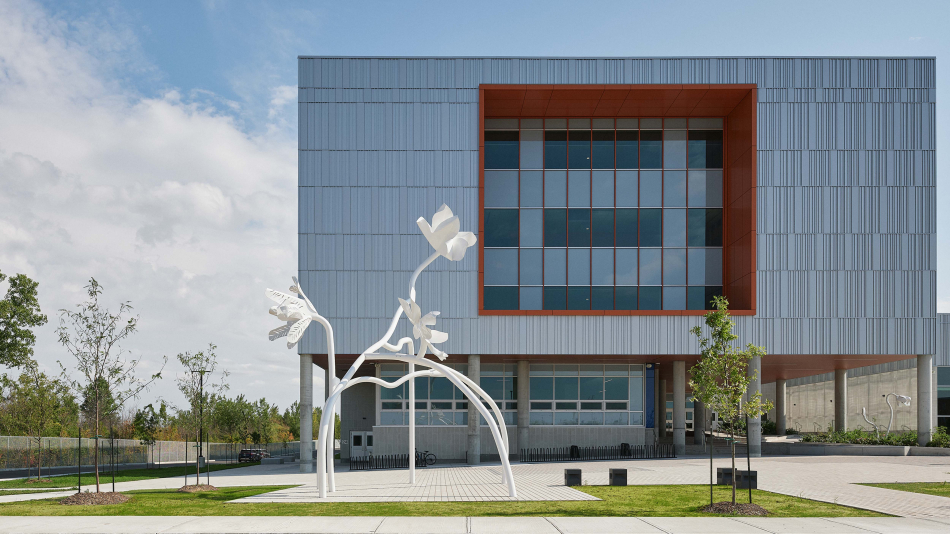The building’s layout is adapted to its surroundings, both in its design and in its massing. Two blocks are organized around an interior courtyard and crossed by two perpendicular axes thus connecting them to adjacent streets. The topography of the site facilitates these connections by creating a series of interconnected levels. The complex opens onto a public plaza that serves as both a welcoming area and a meeting space for students and staff members.
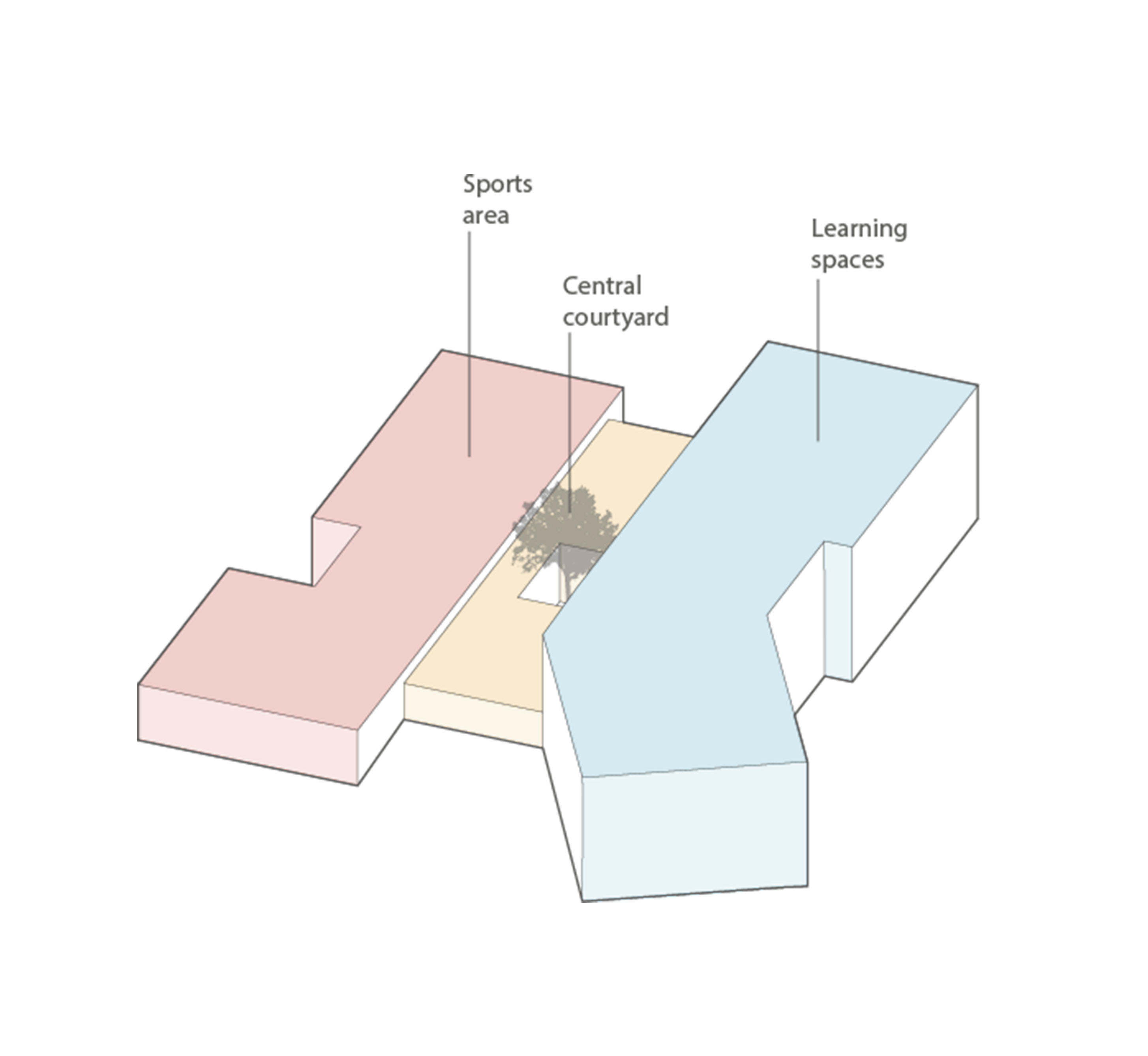
In addition to the integration of government standards, such as the use of Quebec’s fleur-de-lys blue and aluminum panels on the facade, the true architectural interest of the project lies in the educational program and its development within an open and fluid space. Symbolizing this approach, the atrium and central courtyard provide natural light as well as opportunities for collaboration and creativity for students, teachers, and local residents. Their use for cultural and festive events, as well as the availability of sports facilities outside school hours, promotes the integration of the school into its neighbourhood.
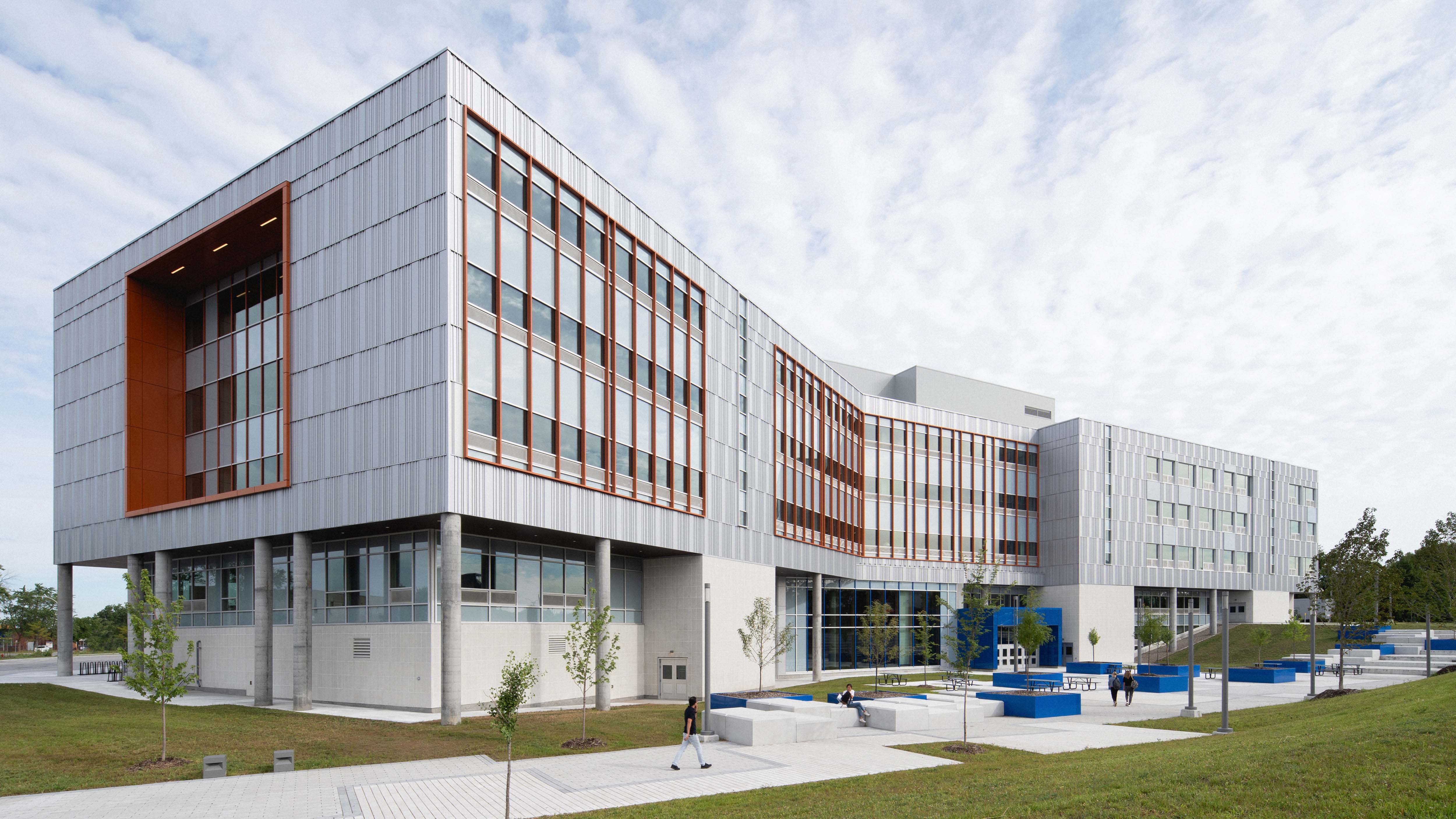
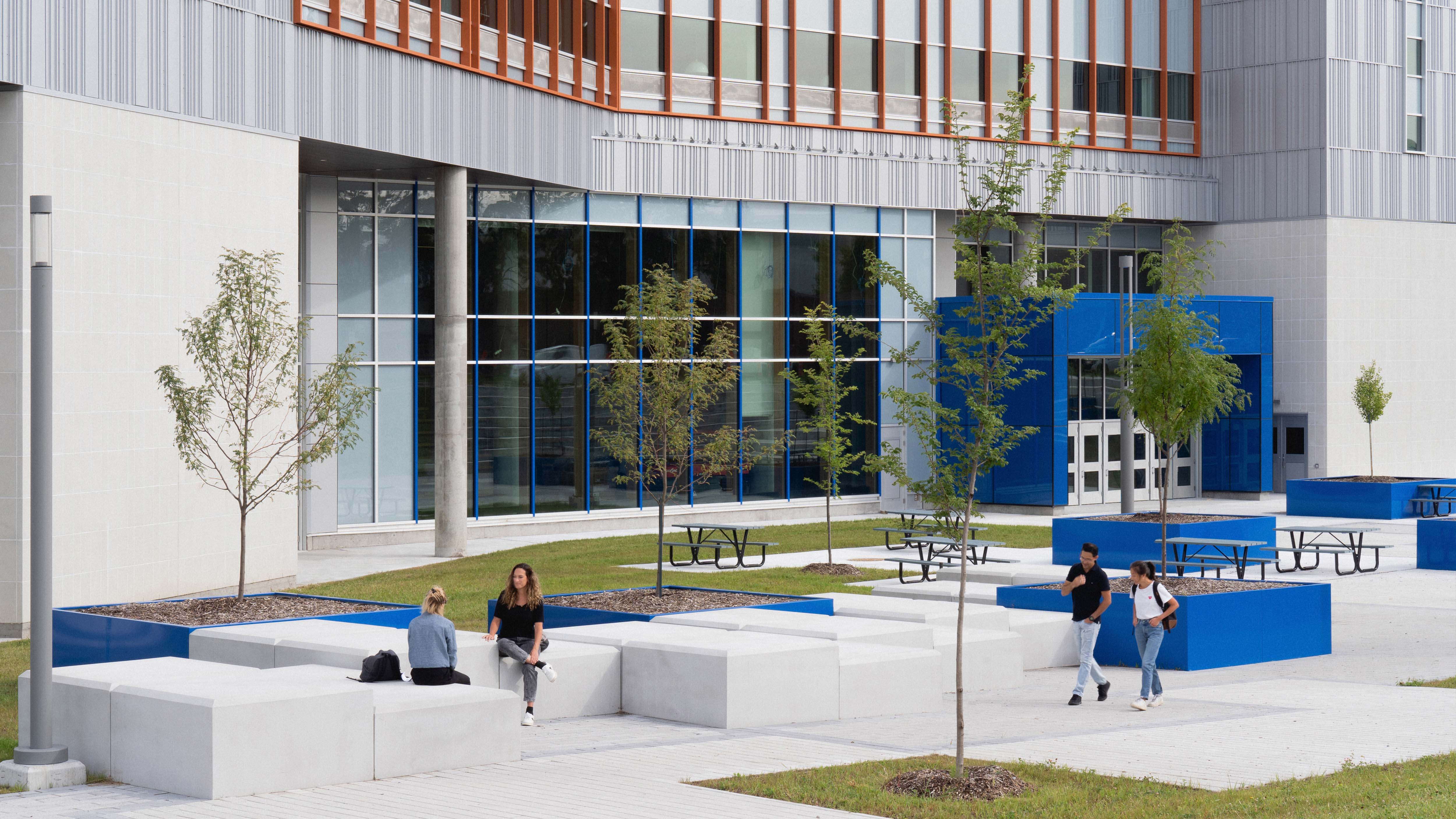
A black maple tree was planted at the heart of the building, to complement the preserved and newly planted trees within the landscaping. This tree underscores the sustainable approach of the project. Numerous environmental features such as recycled concrete sidewalks, green-and-white roofs, a geothermal system, wood columns and cladding, active staircases, waste sorting stations, and electric charging stations, all contribute to daily energy savings. Moreover it ensures an estimated building life of over 75 years all the while meeting LEED Silver certification requirements.
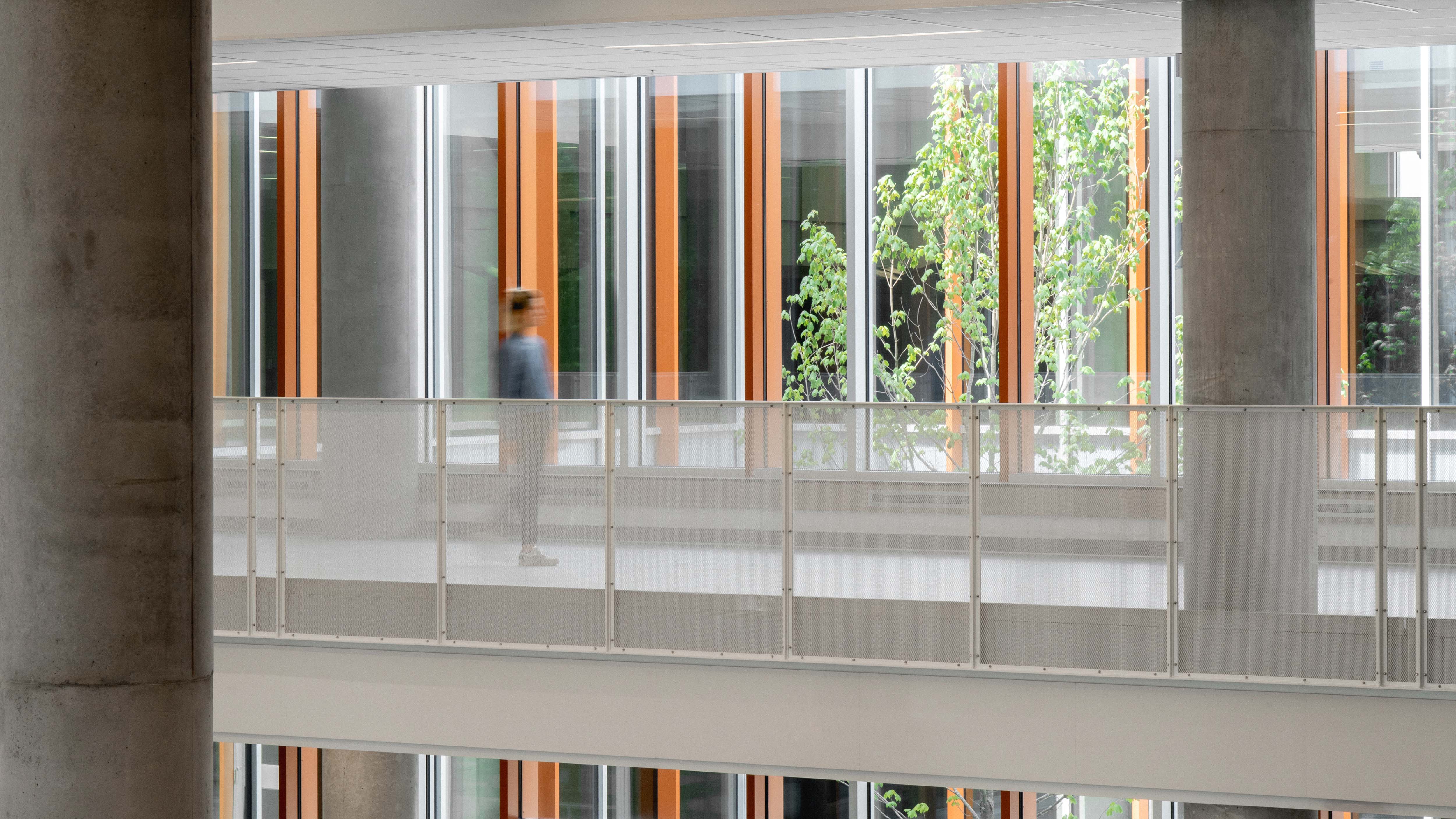
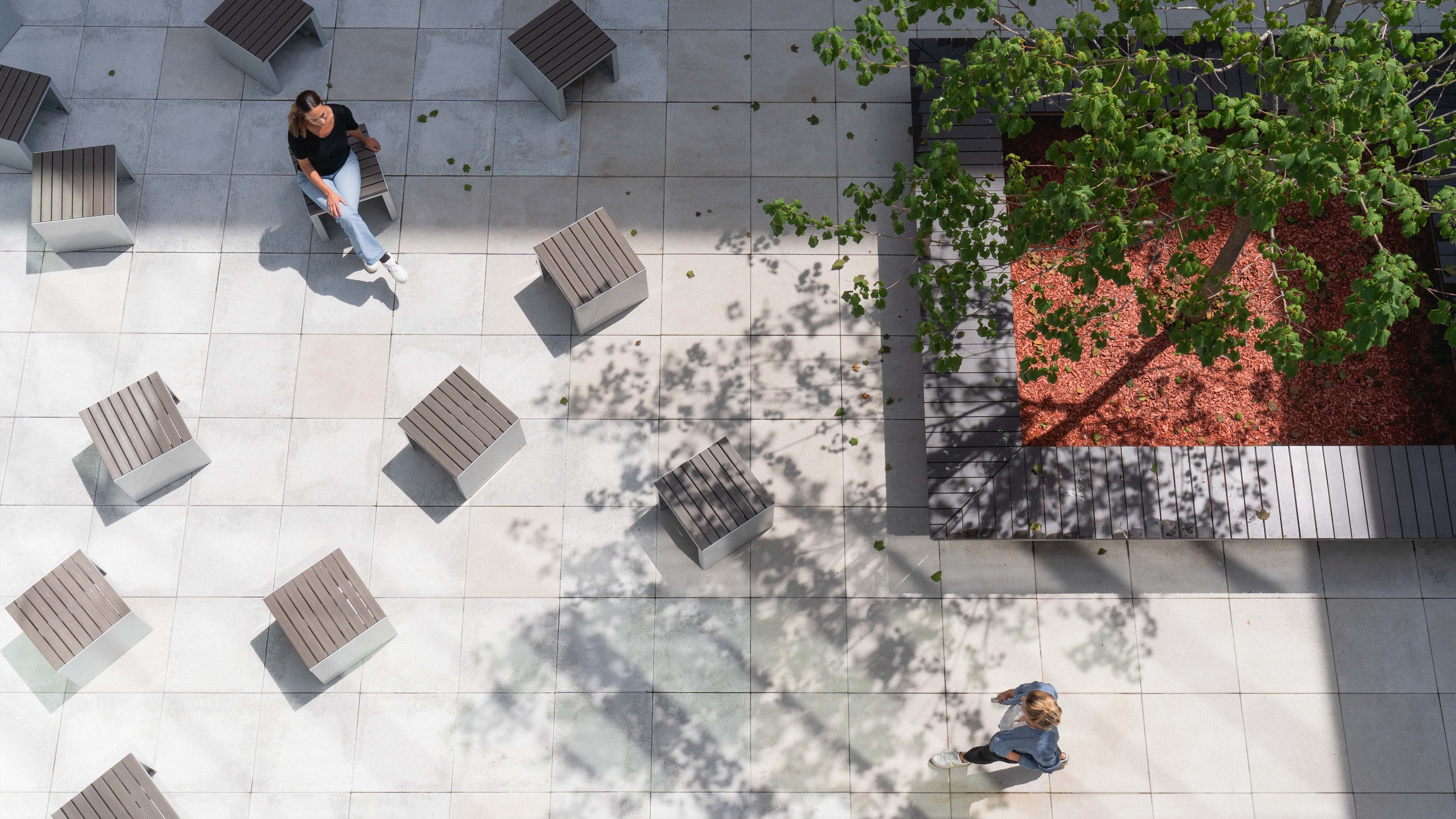
The variety of learning spaces, including technology labs, performance studios, and workshops for manual and digital creation, goes far beyond the traditional classroom. The use of movable partitions allows for flexible configurations to accommodate different student groups and activities. A rich palette of materials, colours, and textures encourages users to move freely throughout the space. Playful signage makes it easy to navigate by clearly identifying program elements while respecting universal inclusion criteria.
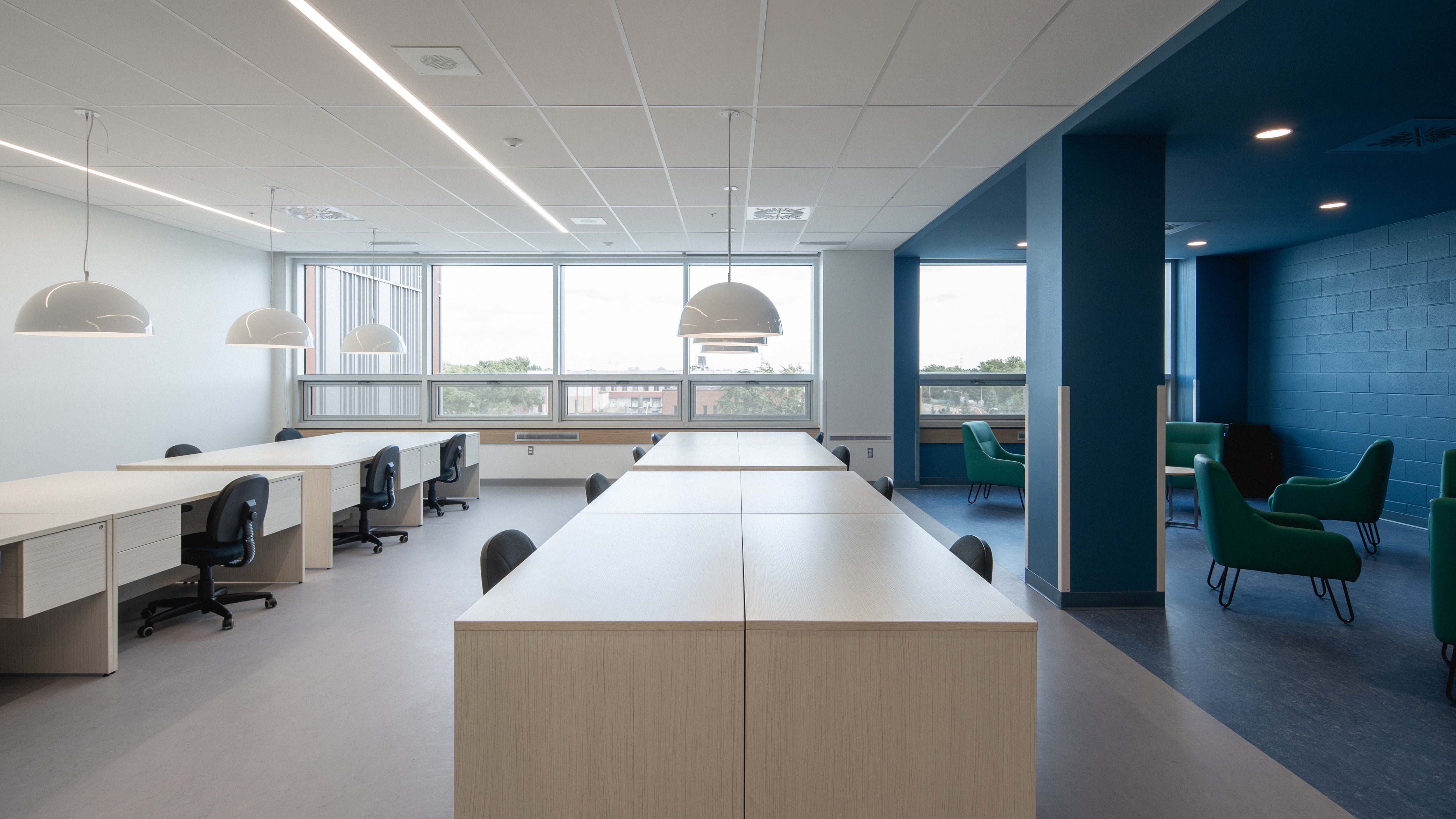
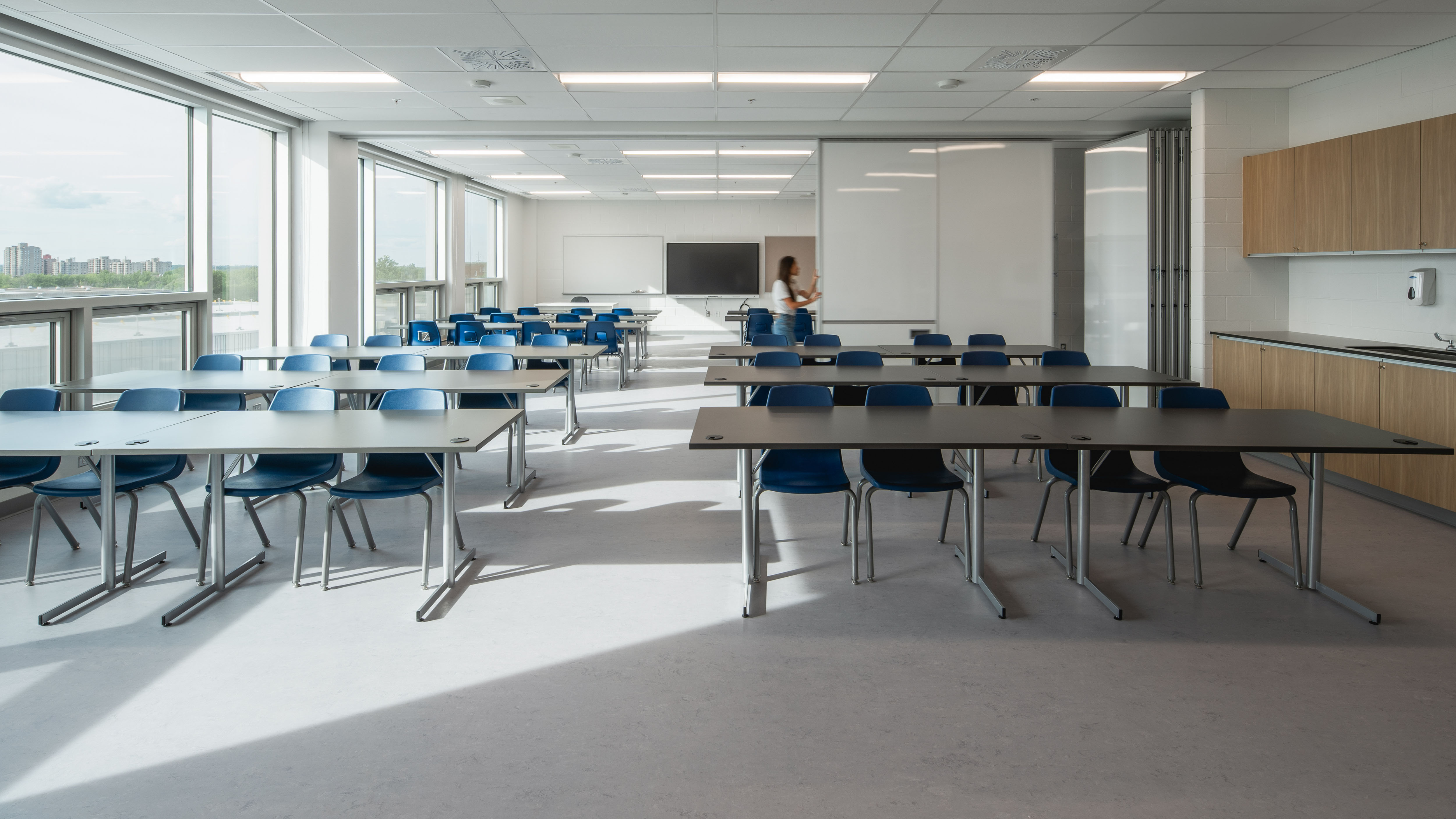
Artworks have been created and integrated as part of the 1% policy. ‘Les Possibles’ by Marc-Antoine Côté features five columns in front of the building’s south facade, a nod to the knowledge accumulated over the centuries. Marc Dulude designed a colourful spiral called ‘Convergences’ that plays with the movement of users and evokes the cycle of creation.
To consult the Press Release
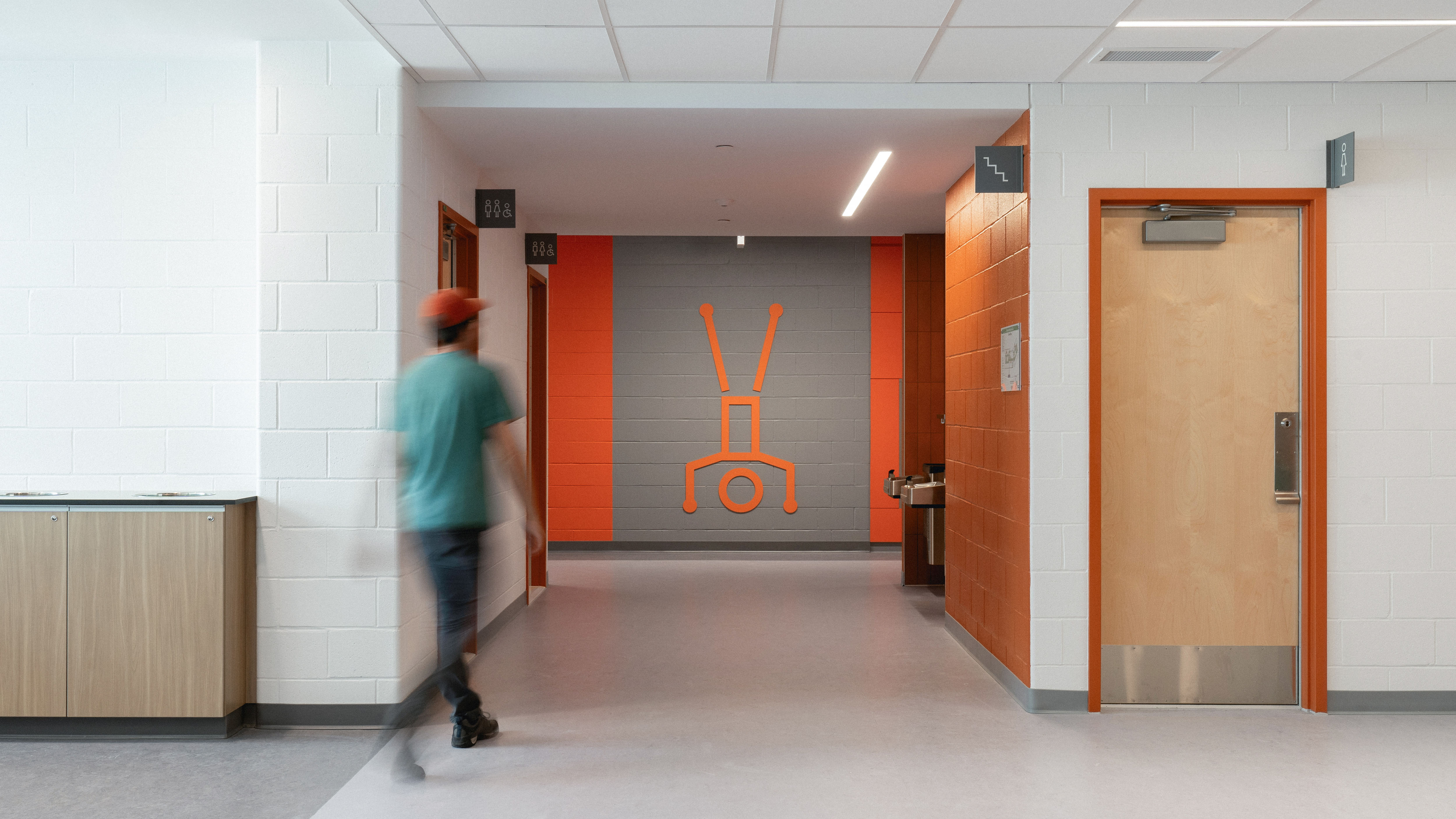
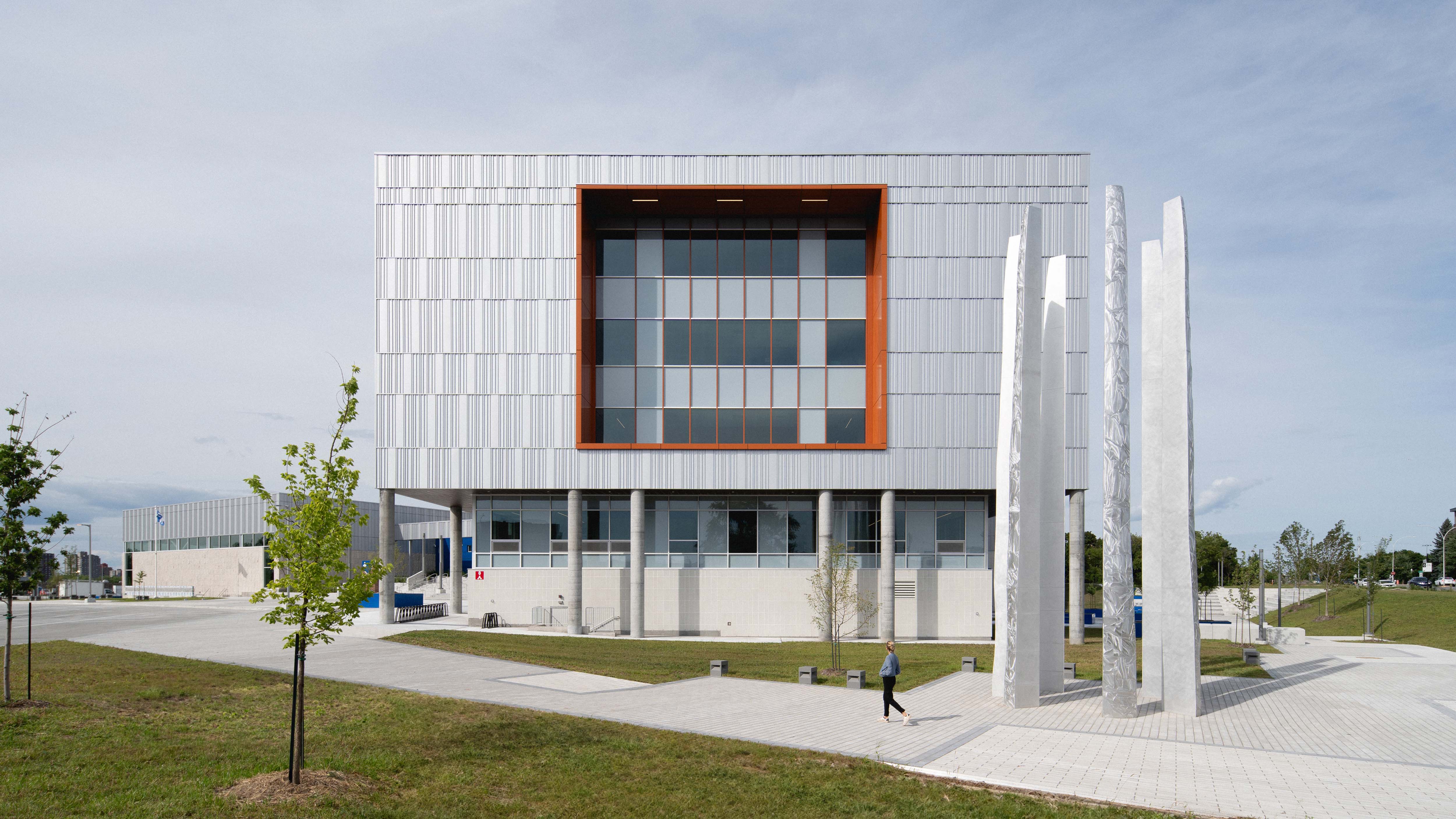
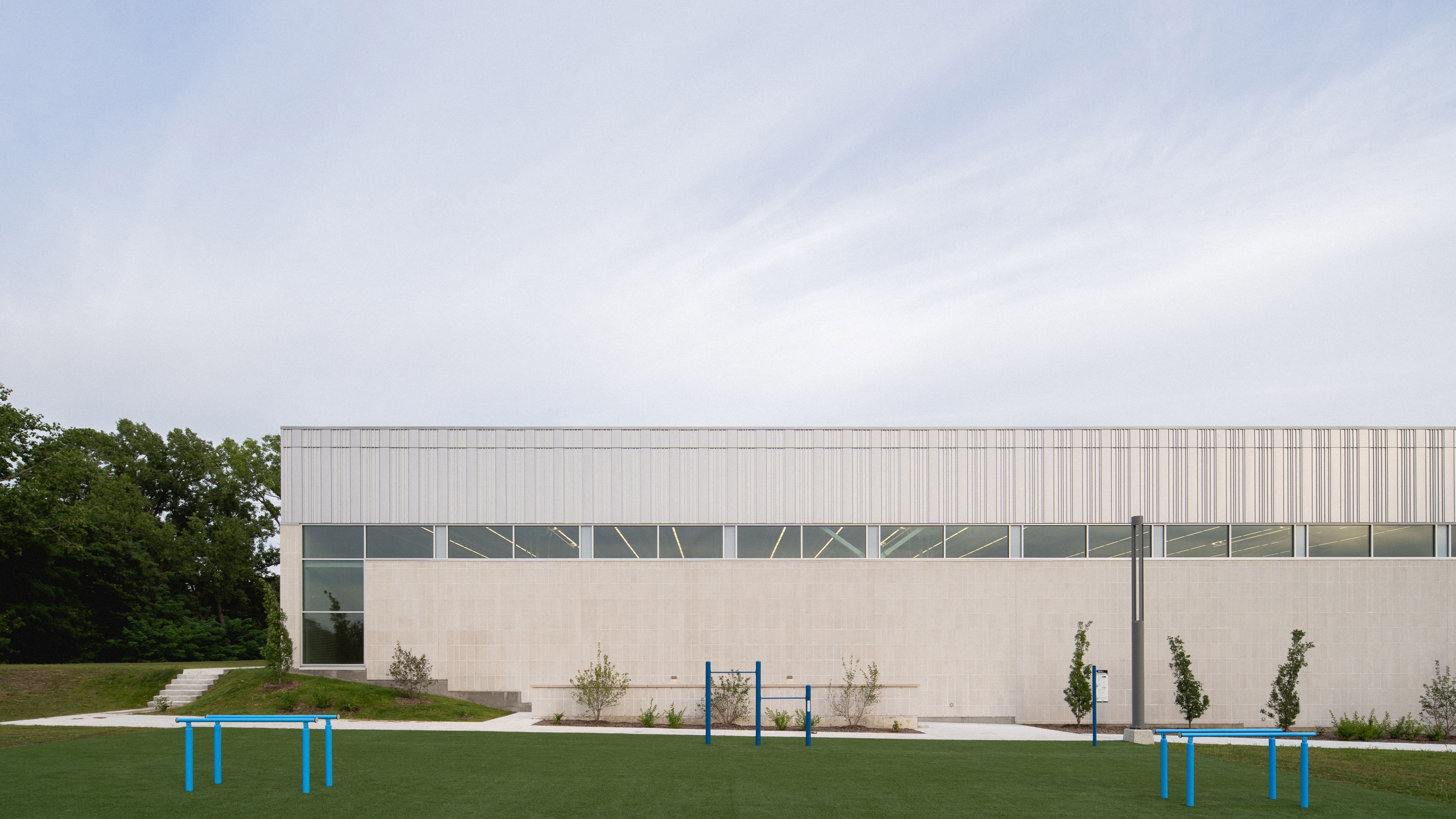
Photo Credit: Raphaël Thibodeau
